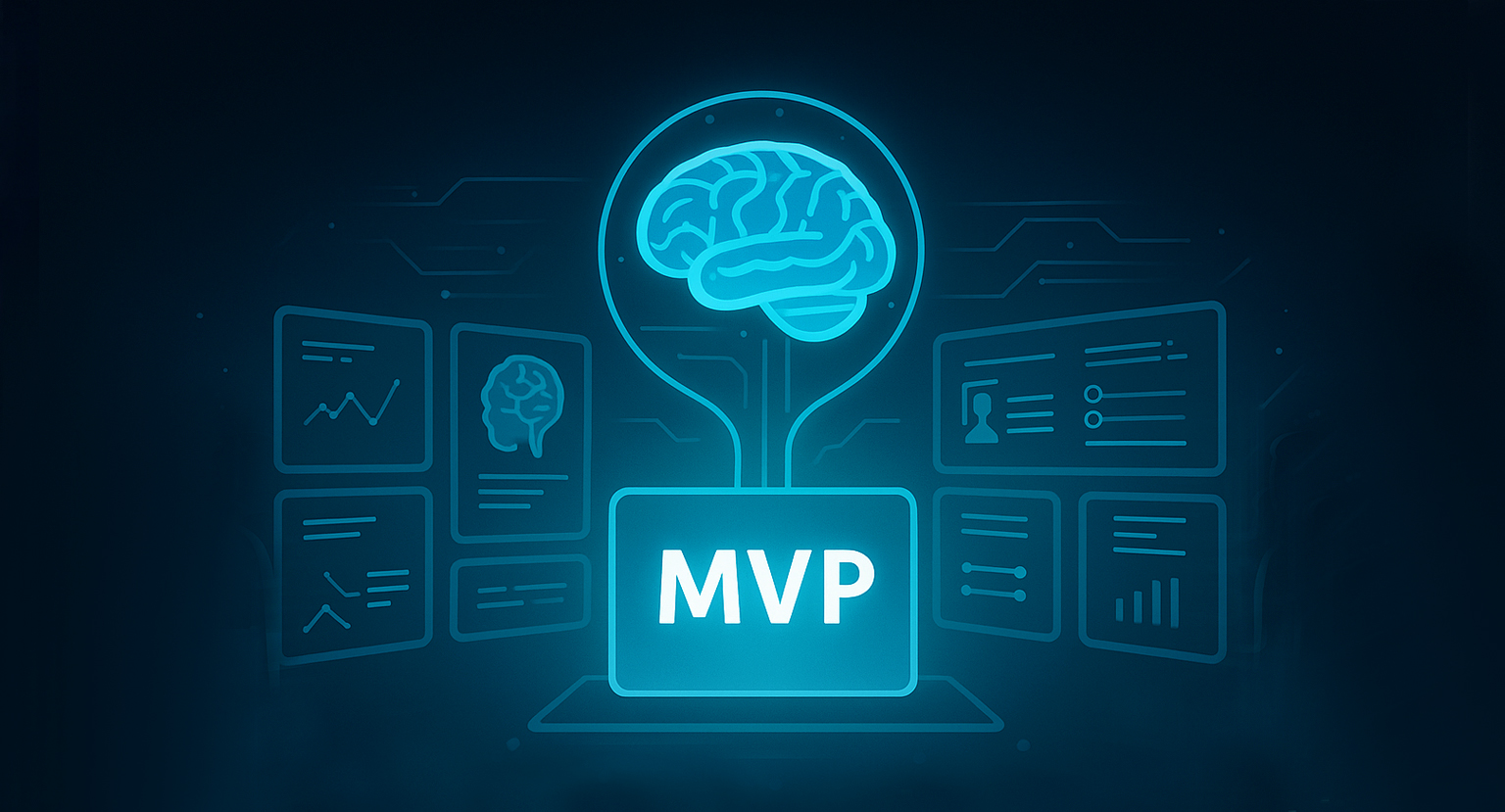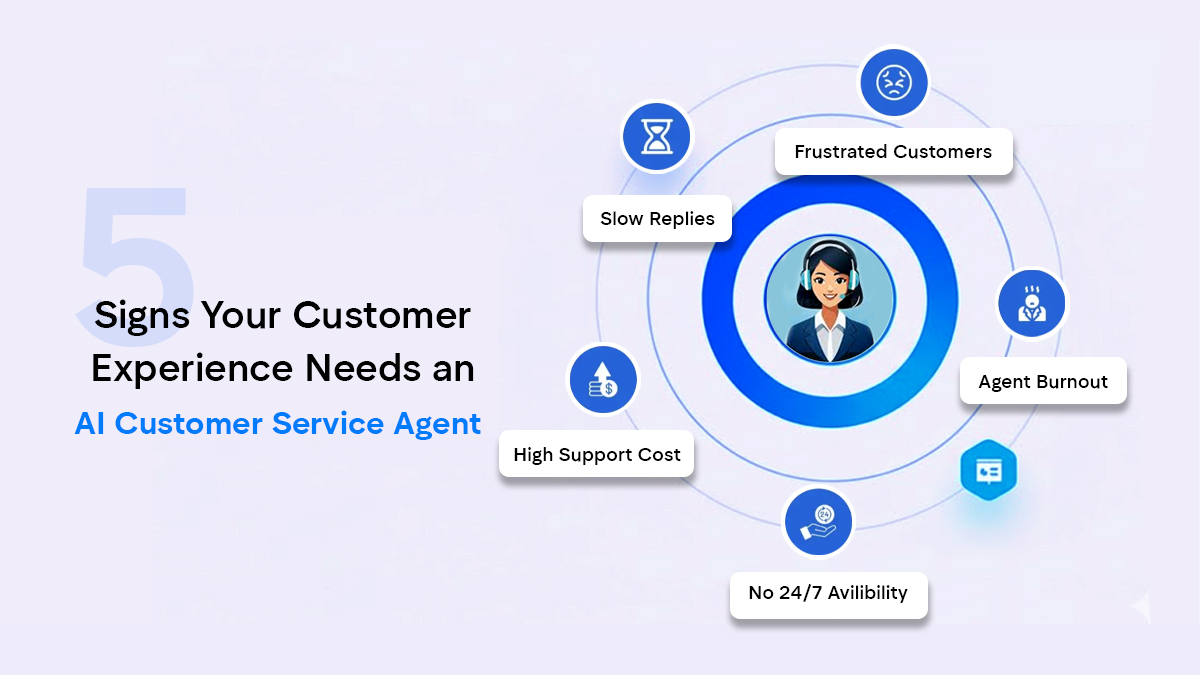The AI landscape is evolving at an unprecedented pace, with new tools emerging weekly that promise to revolutionize startup operations. While AI adoption can significantly accelerate development cycles and provide valuable data-driven insights, the challenge for founders lies not in adopting AI but in implementing it effectively.
Recent studies highlight the tangible benefits of strategic AI implementation:
McKinsey reports that applying generative AI in product development can reduce time-to-market by 20–40 %, while Gartner forecasts that 80 % of customer service and support organizations will adopt generative AI by 2025 to enhance agent productivity and customer experience.
In this article, we examine how to approach AI strategically, identifying the essential platforms that will help you accelerate your MVP development while avoiding common pitfalls.
Start with Real Problems, Not Just Tools
AI should serve as a solution to specific challenges, not as a technological showcase. Before incorporating any AI tools into your development process, clearly define the problem you're addressing by asking:
- What specific bottlenecks are impeding your MVP's progress?
- How will AI help validate your concept and accelerate your path to product-market fit?
- Is your AI implementation enhancing efficiency, improving user experience, or enabling new capabilities?
Many startups incorporate AI as an innovation marker rather than as a response to genuine business requirements. If you cannot establish a direct connection between AI implementation and business impact, it's essential to refine your startup problem statement before proceeding.
Focus on Strategic AI Categories
Rather than pursuing every emerging trend, concentrate on AI categories that align with your startup's specific requirements.
For MVP development in 2025, the most impactful categories include:
- Advanced language models
- Computer vision capabilities
- Agentic workflows
- Scalable machine learning operations
The optimal approach is to select one best-in-class tool per category, avoiding redundancy in your technology stack. AI should streamline your MVP, making it more efficient and scalable, not more complex.
.png)
The Essential AI Tools for 2025
1. ChatGPT-4o
ChatGPT-4o, with its advanced image analysis and vision capabilities, enables startups to process and interpret visual data without extensive computer vision expertise. The "o" designation stands for "omni," reflecting the model's ability to connect with multiple media formats including video, audio, and text.
By integrating ChatGPT-4o into your MVP, you can enhance user experiences through visual recognition, automate image processing workflows, and create more intuitive interfaces that understand both textual and visual inputs.
Example Use Case
Consider a real estate platform MVP connecting buyers with agents. By implementing ChatGPT-4o, you could create a feature that allows users to upload photos of properties or neighborhoods they like, with the AI analyzing these images to identify architectural styles, property features, and neighborhood characteristics.
The system could then provide tailored property recommendations matching the user's visual preferences, significantly enhancing the search experience.
2. Claude: Streamlining Development Through Efficient Code Generation
Claude's exceptional code generation capabilities make it an invaluable asset for startups with limited development resources. It excels at translating business requirements into functional code, automating repetitive development tasks, and providing implementation guidance across various programming languages and frameworks.
Example Use Case
Imagine developing an MVP for a financial analytics platform that requires complex data visualization components. Instead of allocating weeks of developer time to building these elements from scratch, you use Claude to:
- Generate the initial codebase for interactive charts and dashboards.
- Optimize performance of data processing algorithms through automated suggestions.
- Create comprehensive API integrations with financial data providers.
- Develop automated testing scripts to ensure reliability.
This approach reduces development time from weeks to days, enabling faster validation and investor readiness.
3. Flowise: Creating Custom AI Agents Without Coding Expertise
Flowise provides a no-code/low-code solution for building agentic workflows, offering a drag-and-drop interface that simplifies frameworks like LangChain, LangGraph, and LlamaIndex.
Example Use Case
An e-commerce MVP targeting small businesses could leverage Flowise to create an inventory optimization agent that:
- Analyzes sales data + inventory levels.
- Predicts seasonal demand fluctuations.
- Generates optimized purchase recommendations.
- Communicates with suppliers via automated workflows.
This gives SMBs enterprise-level intelligence without hiring an analytics team.
4. AWS SageMaker: Scalable, Cost-Effective Machine Learning Infrastructure
AWS SageMaker offers a full platform for developing, training, and deploying ML models at scale. Its pay-per-use pricing makes enterprise-level AI accessible to startups
Example Use Case
For a precision agriculture MVP:
- Train a custom ML model using satellite imagery + soil/moisture data.
- Fine-tune with regional historical data.
- Deploy as an API generating irrigation recommendations.
- Auto-scale during peak usage (pre-dawn irrigation).
This ensures highly specialized outputs, cost efficiency, and scalability without heavy upfront investment.
Strategic AI Implementation Drives Success
The most successful startups approach AI not as a feature to showcase but as a strategic tool to solve specific problems more efficiently. This means:
- Begin with a clear understanding of the problem you're solving, then identify the appropriate AI capabilities to address it
- Master a small set of powerful tools rather than implementing multiple overlapping solutions.
- Focus relentlessly on execution, AI accelerates validation and improves user experience, but it doesn't replace thoughtful product strategy.
In 2025, the startups that achieve breakthrough success won't be distinguished merely by AI adoption. They'll be defined by strategic AI implementation that enables faster iteration, more intelligent decision-making, and cost-effective scaling. That's how you build an MVP that doesn't just launch but succeeds.



.jpg)



